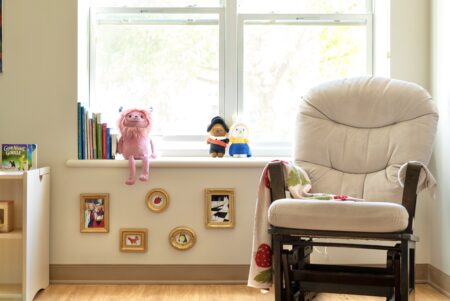Do you know what your life principles are? Could you tell them to me if I asked?
If you’re like the average person (or fortune cookie), you could probably rattle off a list of promises you don’t always keep. Don’t go to bed angry. Never hit snooze. Always make the bed when you get up. (Why are all of these about sleeping?)
Getting to the life principles that you actually use to structure your choices is a little more complicated.
Why I (Re)Defined My Life Principles
In October of 2017, at the ripe old, melodramatic age of 24, I felt my personal and professional life were at a deep low. I was on the East Coast, visiting my parents for a wedding and a funeral (come at me, Hugh Grant). I was incredibly down about losing my godmother, and felt slighted by many of my friends, who hadn’t all been there for me when she died. In addition, I was completely exhausted from visiting some 20 people in my 2 weeks in the States. And, on top of that, I was still reeling from a career flop that had deeply shaken my professional confidence.
I wanted a new start. And, since life doesn’t come with a reset button, I had to do it myself.
In the year and a half since, I’ve gotten engaged, changed four dress sizes, and dramatically redirected my career to something with more flexibility and opportunity (more on that here). More importantly, I feel much more confident, empowered, and secure — both in who I am and where I’m going.

Pictured: me gazing into my amazingly bright future and/or a fluorescent light.
The changes I’ve made are linked with a series of new life principles I’ve picked up. Some I learned from books, speakers, or videos. Some I learned from major life experiences, or from these changes themselves. This isn’t a list of all my values or principles, but the three new ones that have made the biggest difference in me changing my life in the last two years.
I understand that these principles won’t work for everyone. I’m not writing this article to tell you how to shape your life. Instead, I’d like to show you the principles I use to shaped mine, and encourage you to discover and write out the ones that work for you.
The Life Principles I Use for Growth
I am fully responsible for my life.
Core value: responsibility.
I choose to take an extreme level of responsibility over my life and choices. For several years, I placed the blame for a lot of my failures, hurt feelings, or inner wounds on other people. But if you chalk up all your problems to someone else, there’s never any reason to better yourself. Instead, I now choose to accept full responsibility for the choices I made that led to certain outcomes in my life, even if other people or circumstances played a major role. This maximizes how much I can learn from my experiences and prevents me from feeling bitter at others.
I want to make a clear distinction between taking personal responsibility for your actions and blaming yourself for things that aren’t your fault. There are, of course, many circumstances that are out of our control, such as natural disasters, chronic illness or disability, or others intentionally harming or victimizing us. I think it’s very important to place the blame for these things where it belongs, and not with ourselves.
What I’m talking about here is taking full responsibility for the role we play in our own lives — our half of the fight, our poor judgment in a business deal that went wrong, our lack of financial planning, and things in that vein. If I tank a job interview, I’ll learn more from the experience if I take responsibility for it than if I assume the other person didn’t like me or is ‘just stupid.’ It’s not completely true that I have ownership over everything in my life; but believing that I do makes me a better and more growth-oriented person.
I believe the things that help me grow.
Core value: growth.
The responsibility principle is the perfect example of an empowering lie. Obviously, I don’t have total control over my life. Major news events, the family and country I was born in, the quality of my local public school, and my genetics have all played large roles in bringing me to where I am today; for better and for worse. But when I choose to accept full responsibility for everything in life, I am a more thoughtful, productive, and growth-oriented person. So, even if a statement isn’t true, I choose to believe it if its result is better than the alternative.
This plays out in many beliefs that I have. For example, and this is a little silly: I choose to believe that the positive outcome for me is virtually guaranteed. Whether I’m going into a job interview, applying for an award or scholarship, or playing a board game, I encourage myself to believe that I’m going to succeed.
Why? If I go into something with the assumption that I’ll fail, I’ll be nervous. And, I’ll be less likely to make smart choices because of my anxiety. If I go in assuming that I’ll succeed, I’ll be confident and decisive.
Which circumstance is more likely to help me get a positive outcome?
Exactly.
Conversely, I choose not to believe things that will make me feel or perform worse. Obviously, I don’t run around shouting “I DON’T BELIEVE YOU” at newspapers and other people. Accepting reality is important. But if something’s up the air or I only have limited information, I won’t assume the worst. I don’t know why Julie hasn’t texted me, but that doesn’t mean she hates me or is dead, until proven otherwise. Choosing not to assume the worst helps me live with fewer feelings anxiety and a strong focus on the things that move me forward.
I am 100% honest with myself and others, even when it sucks.
Core value: integrity.
I have several friends who I love deeply, but who lie to me all the time. They’re white lies, and fairly harmless. They’re meant to make me feel better (“Yes, I read your new article!”) or to ease a tricky situation (“Yes, I already mailed your package!”). I don’t assume that my friend is lying when it happens, but usually realize later that she hasn’t actually read the article or that the mail date on my package is a week later than she said it was. This isn’t a deal-breaker for me; I don’t love those friends any less for it. But it does mean that, sometimes, I’m less likely to believe or rely on them.
I think the same thing goes for being honest with yourself. It’s important to be truthful about how you feel, what you think, and what you actually do right or wrong. When we’re not honest with ourselves and others, we start to take our own word less seriously. At the end of the day, the only person who will never leave you is yourself. And if you can’t trust her, what good is that?
So, I choose to be honest — even when it would be so, so convenient not to be. If I ate 3 helpings of pasta every day for a week, I don’t pretend my weight gain is just water weight. If I didn’t study as hard as I could have and do badly on a test, I don’t pretend it’s the teacher’s fault, or the grade curve. And if I went to bed at 3AM last night and feel groggy all day, I don’t pretend it’s because I “just couldn’t fall asleep,” when I know it’s secretly because I was watching YouTube videos.
How My Growth Principles Fit Together
It might sound like the principle of radical honesty is at odds with the principle of empowering lies. After all, how can I believe things that aren’t true and also be honest with myself?
To me, these principles apply to different parts of my life.
I take full responsibility for my actions, because doing so helps me grow.
I believe that the things outside of my control are lining up for my benefit, because doing so helps me act with confidence.
I’m honest about what I really feel, think, and do because doing so helps me trust myself and lets others trust me.
The first principle is about my attitude towards my life, the second is about my attitude towards the world, and the third is about my attitude towards my thoughts and feelings.
My Life Principles for Relationships and Self
These aren’t the only principles I use to shape my life. I also have explicitly-defined principles in the areas of work, my relationships with others, and my relationship with myself. Some of those take on a very different tone. For example, I think the principles above are focused on integrity and pragmatism. My relationship life principles are much more focused on compassion and presence, and my personal life principles center around authenticity and playfulness. If you liked this post and are curious about my other principles, let me know in a comment — I’d be happy to share them.






This is such a lovely article, I have never thought of doing this. I need to define my principles as well !
I never thought about this but it makes so much sense. I need to think about this more.
I’d love to read more about your other principles 🙂
Just stumbled upon your article when trying to determine my own life principles and values. I am so inspired by your deep insight and thoughtfulness at a young age. Would love to hear about your other principles, particular since it has been a few years since this entry. Cheers!